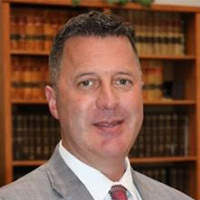Oldfield Misdemeanor Lawyer, Missouri
Not enough matches for Oldfield Misdemeanor lawyer.
Below are all Oldfield Criminal lawyers.
Scott Gregory Taylor
✓ VERIFIEDDivorce & Family Law, Workers' Compensation, Personal Injury, Criminal
Scott G. Taylor graduated from St. Louis University School of Law in 1993 and was admitted to the Missouri Bar that same year. Scott previously attend... (more)
Jeffrey C. Goodnight
Adoption, Alimony & Spousal Support, Animal Bite, Criminal
Status: In Good Standing
Stuart P. Huffman
Litigation, Estate Planning, Family Law, Criminal, Insurance
Status: In Good Standing
Darryl Brent Johnson
Criminal, Accident & Injury, Divorce & Family Law
Status: In Good Standing Licensed: 33 Years
Sherri Lynn Harris
Federal Appellate Practice, Government, Criminal, Accident & Injury
Status: In Good Standing


